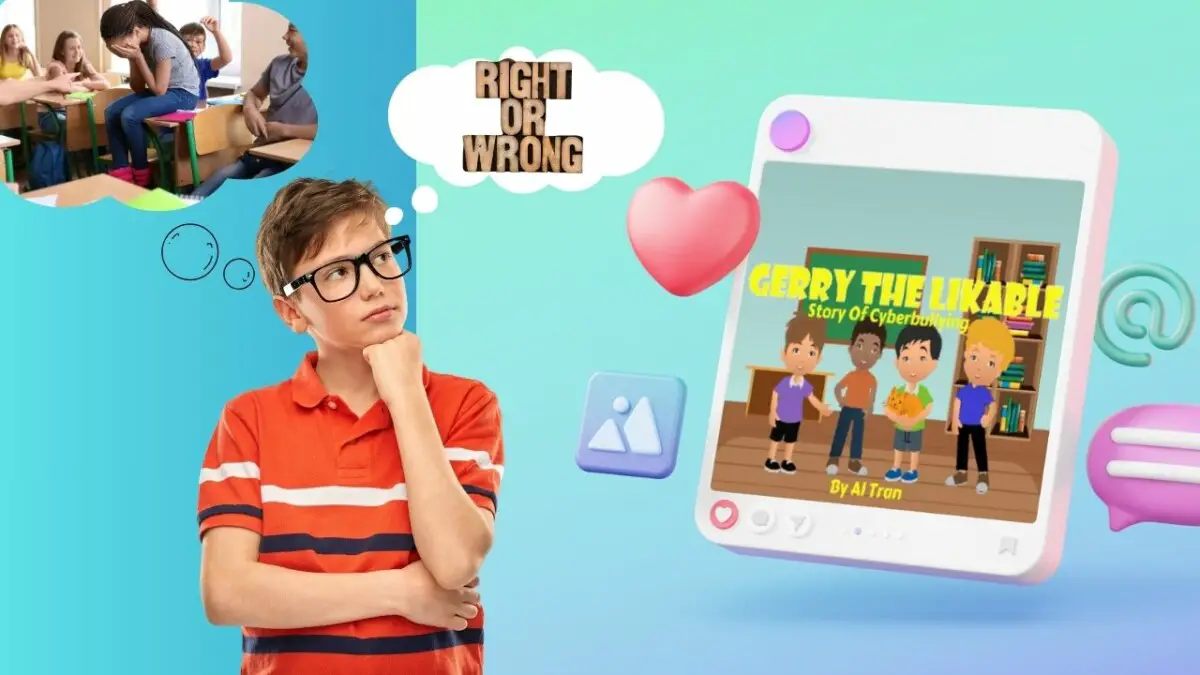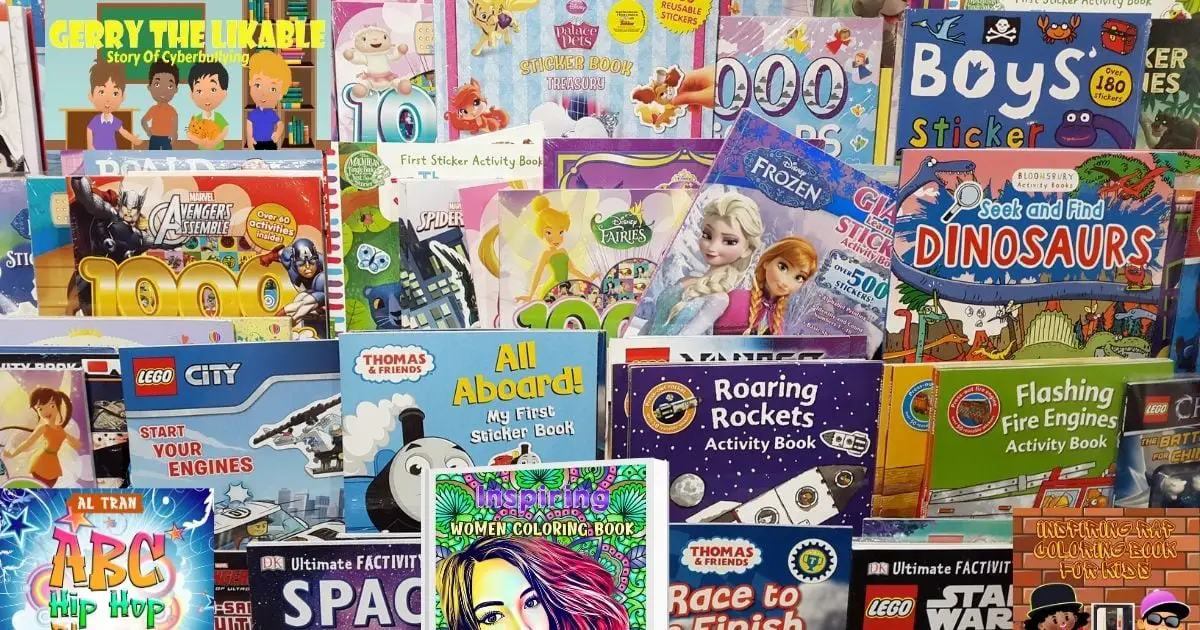Behavioral challenges in child development frequently present a substantial hurdle for parents and educators within the dynamic landscape. The power of reading could potentially serve as the transformative tool necessary for those grappling with managing children exhibiting disruptive conduct. This article explores how reading can significantly impact improving behavior in such struggling children.
Reading books, especially the ones that focus on character relationships can significantly contribute to improving children’s behavior. These stories can provide valuable lessons about how characters’ actions can impact others around them, prompting children to reflect on their own behavior.
Kids can improve their understanding of moral values by envisioning themselves in the characters’ situations in books. This imaginative step supports their personal growth and maturity, helping them comprehend the complexities of the world and apply the lessons learned from stories to their own behavior.
The Cognitive Benefits of Reading

1. Enhancing Empathy and Emotional Intelligence:
A lack of understanding of emotions often forms the core of many behavioral issues. Children can step into the character’s shoes and experience a plethora of emotions by engaging with literature. This vicarious involvement nurtures both empathy and emotional intelligence which are crucial elements in managing social interactions.
Children, as they engage with characters navigating dilemmas, garner insights into the repercussions of diverse actions. This is a process that establishes an initial foundation for thoughtful decision-making.
Building upon this idea, exposure to an array of diverse characters and their respective emotional journeys in literature augments a child’s emotional vocabulary. The enrichment of emotions equips them with the capability not merely to identify and comprehend their feelings, but also sharpens their capacity for empathy in real-life scenarios. As they traverse through the various landscapes of emotion within different character narratives, children cultivate an intricate understanding and a grasp of empathy. It is this understanding that plays a crucial role in fostering healthier interpersonal relationships.
2. Cognitive Stimulation and Problem-Solving Skills:
Engaging in reading provides a mental workout that stirs diverse cognitive functions. As children engross themselves within narratives, their tasks extend beyond mere word decoding. They vigorously process and comprehend intricate storylines. This vigorous mental exercise bolsters problem-solving abilities, urging kids to think critically, and draw correlations between plot developments and real-world scenarios thereby enhancing overall comprehension skills. Such cognitive stimulation contributes significantly to the development of self-regulation and impulse control.
Deciphering narratives in literature not only provides direct cognitive benefits but also sharpens a child’s ability to analyze and synthesize information. As they adeptly navigate through plot twists and turns, children cultivate the skills of outcome anticipation, pattern identification, as well as drawing cause-and-effect connections. The act of reading thus cultivates analytical proficiency that extends beyond fiction into offering practical problem-solving tools and facilitating informed decision-making across their multifaceted lives.
The Role of Reading in Shaping Values

1. Learning from Moral Dilemmas to Improve Behavior:
Children experiencing behavioral challenges often grapple to comprehend the repercussions of their actions. Literature frequently portrays characters wrestling with moral quandaries, thereby offering youngsters a chance for introspection on matters of ethics and wrongdoing. Such narratives enable children to internalize moral lessons indirectly, nurturing responsibility and fostering ethical decision-making without confrontation.
Further, exposure to moral dilemmas presented in literature enhances children’s comprehension of intricate ethical decision-making processes. It also fosters critical thinking regarding the stimuli driving character actions. By scrutinizing subtleties inherent within these choices, children subsequently evolve a sophisticated discernment for morality. This broadens their outlooks on what is right and wrong. Consequently, such augmented understanding lays down an empathetic foundation as kids start appreciating the manifold influences that shape real-life decisions by individuals.
2. Developing a Sense of Responsibility:
The importance of responsibility, towards oneself and others, shines through in certain stories. As children identify with characters who face the repercussions of their actions, potent role models for promoting accountability can grasp a better understanding of being accountable. This identification allows kids to recognize how deeply their behavior impacts those nearby them. Thus, fostering an overarching sense of responsibility that transcends mere personal boundaries.
Furthering this discourse, literature’s narrative investigation into responsibility surpasses individual actions and encompasses the wider notion of societal accountability. Tales that illuminate characters making positive contributions to their communities provoke children to contemplate their roles within a more expansive social framework. This enhanced viewpoint cultivates a sense of civic duty. It spurs childhood imaginations towards envisioning themselves as responsible society members who actively promote collective well-being.
Reading as a Therapeutic Tool

1. Providing a Safe Outlet for Expression:
Children, who confront behavioral challenges, might encounter difficulty in expressing their emotions. They can use reading as a therapeutic outlet. It enables them to project their feelings onto fictional characters. By identifying with characters experiencing similar struggles, children can indirectly articulate and express themselves emotionally. Thereby, nurturing a sense of catharsis and releasing pent-up emotions.
Projecting emotions onto fictional characters indeed resembles a form of emotional role-playing. Children, as they navigate the complexities of these character’s experiences, subconsciously explore their feelings, thereby engaging in an introspective journey. This not only offers them a secure space for expression but also fosters self-awareness. Importantly, it assists in developing emotional regulation skills gradually.
2. Facilitating Open Communication:
Literature engagement not only fosters a relationship between children and caregivers but also establishes an avenue for communication. The shared experience of reading creates a platform where discussions about characters’ actions, feelings, and even their choices take place. This dialogue provides valuable insight into the child’s thought processes, an interactive window into their world.
Open dialogues, characterized by trust-building and emotional bond strengthening, not only guide children but also nurture them effectively. They are pivotal in shaping young minds towards critical thinking and empathy.
Caregivers can indirectly impart valuable lessons through the act of discussing characters’ choices in a story. They address moral dilemmas presented in literature to guide children, without directly confronting their behavior, thus enabling an understanding of right from wrong. This non-confrontational atmosphere fosters a subtle approach to communication that makes it easier for children to absorb important lessons and apply them effectively in their own lives.
Research Insight:
A study conducted by the American Academy of Pediatrics revealed that children exposed to an environment abundant in books and reading (a home rich with literary resources) manifested fewer behavioral issues than their counterparts without this exposure. This finding highlighted not just the significant impact of reading on childhood behavior outcomes, but also its potential role as a mitigating factor.
Conclusion
To wrap it all up, the path toward enhancing challenged children’s behavior is intricate. However, integrating reading into their daily routines can serve as an influential agent for positive transformation. Literature, by attending to cognitive, moral, and therapeutic dimensions becomes a comprehensive tool. It fosters empathy, sparks intellectual development, and sculpts values, all while offering an outlet for healing. Caregivers, parents, educators, and mentors possess the potential to exploit this transformative force inherent in reading. They steer children towards futures that are both brighter and better balanced.





